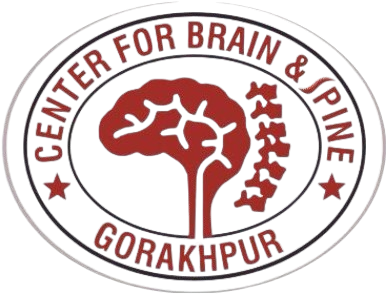Brain tumors are abnormal growths of cells within the brain or its surrounding structures. They can vary widely in terms of their behavior, severity, and treatment options. Understanding brain tumors involves knowing about their types, causes, symptoms, diagnosis, and treatment options.
Types of Brain Tumors
Brain tumors are broadly categorized into two types:
Primary Brain Tumors:
- Origination: Arise from the brain tissue itself or the immediate surroundings, such as the meninges, cranial nerves, or pituitary gland.
- Types:
- Gliomas: The most common type, originating from glial cells. Subtypes include astrocytomas, oligodendrogliomas, and glioblastomas (GBM).
- Meningiomas: Tumors that develop from the meninges, the membranes surrounding the brain and spinal cord. Usually benign but can be malignant.
- Pituitary Adenomas: Tumors arising from the pituitary gland, affecting hormone levels and potentially leading to vision problems.
- Schwannomas: Tumors that develop from Schwann cells, typically affecting cranial nerves, such as acoustic neuromas (vestibular schwannomas).
- Medulloblastomas: Common in children, these tumors originate in the cerebellum and can spread through the cerebrospinal fluid (CSF).
- Craniopharyngiomas: Benign tumors near the pituitary gland, affecting hormonal balance and vision.
Metastatic (Secondary) Brain Tumors:
- Origination: Spread from cancers located elsewhere in the body (e.g., lung, breast, melanoma) to the brain.
- Common Sites of Origin: Lungs, breast, kidneys, and skin (melanoma).
- Characteristics: Often multiple lesions, more common than primary brain tumors in adults.
Symptoms of Brain Tumors
Symptoms of brain tumors vary depending on the tumor’s location, size, and growth rate. Common symptoms include:
Headaches:
- Often worse in the morning or with changes in position.
- Persistent and may not respond to typical headache remedies.
Seizures:
- New-onset seizures, particularly in adults, can be a sign of a brain tumor.
- Can range from mild to severe and may involve loss of consciousness or convulsions.
Cognitive or Personality Changes:
- Memory loss, confusion, difficulty concentrating, or changes in behavior.
Neurological Deficits:
- Weakness or numbness in a limb or one side of the body.
- Difficulty with speech, vision changes, or loss of coordination and balance.
Nausea and Vomiting:
- Often associated with increased intracranial pressure (ICP).
Vision Problems:
- Blurred vision, double vision, or loss of peripheral vision.
Hearing Loss:
- Particularly with tumors affecting the cranial nerves, like acoustic neuromas.
Endocrine Dysfunction:
- Hormonal imbalances due to pituitary tumors or other tumors affecting endocrine function.
Diagnosis
Diagnosing a brain tumor involves several steps:
Medical History and Physical Examination:
- Evaluation of symptoms, neurological examination, and medical history.
Imaging Studies:
- MRI (Magnetic Resonance Imaging): The gold standard for brain tumor imaging, providing detailed images of brain structures.
- CT (Computed Tomography) Scan: Often used in emergencies or when MRI is not available.
- PET (Positron Emission Tomography) Scan: Used to assess tumor activity and differentiate between tumor types.
Biopsy:
- Stereotactic Biopsy: A minimally invasive procedure to obtain a tissue sample for histopathological analysis.
- Open Biopsy: Performed during surgery if the tumor is accessible and requires resection.
Lumbar Puncture (Spinal Tap):
- May be used to analyze cerebrospinal fluid for the presence of tumor cells, especially in cases of suspected metastasis or certain tumor types like medulloblastoma.
Electroencephalogram (EEG):
- May be used to evaluate seizure activity and its relation to brain tumors.
Treatment
Treatment options for brain tumors depend on the type, size, location, and overall health of the patient:
Surgery:
- Craniotomy: The surgical removal of part of the skull to access and remove the tumor.
- Minimally Invasive Surgery: Techniques like endoscopic or keyhole surgery to reduce recovery time and complications.
- Awake Surgery: Sometimes performed when the tumor is near critical areas of the brain to ensure no vital functions are impaired.
Radiation Therapy:
- External Beam Radiation: Targeted radiation to destroy tumor cells, often used post-surgery.
- Stereotactic Radiosurgery: A precise form of radiation therapy, such as Gamma Knife or CyberKnife, used to treat small tumors or remnants after surgery.
Chemotherapy:
- Systemic Chemotherapy: Drugs given orally or intravenously to target cancer cells throughout the body.
- Intrathecal Chemotherapy: Delivered directly into the cerebrospinal fluid for certain types of brain tumors.
Targeted Therapy:
- Drugs designed to target specific genetic mutations or proteins in tumor cells.
Immunotherapy:
- Checkpoint Inhibitors: Drugs that help the immune system recognize and attack tumor cells.
- Vaccines: Experimental treatments aimed at stimulating an immune response against the tumor.
Palliative Care:
- Focuses on relieving symptoms and improving quality of life, particularly for advanced or untreatable tumors.
Prognosis
The prognosis for brain tumors varies widely depending on factors like tumor type, location, and patient health:
- Benign Tumors: Often have a good prognosis after complete surgical removal, but some may recur or cause complications due to their location.
- Malignant Tumors: Prognosis depends on the type and grade of the tumor. For example, glioblastomas are aggressive and have a poorer prognosis compared to other types like meningiomas.
Conclusion
Brain tumors are complex and potentially life-threatening conditions that require prompt and specialized care. Advances in neurosurgery, imaging, and adjuvant therapies have improved outcomes for many patients. If you or someone you know experiences symptoms suggestive of a brain tumor, it is crucial to seek medical evaluation as early as possible

